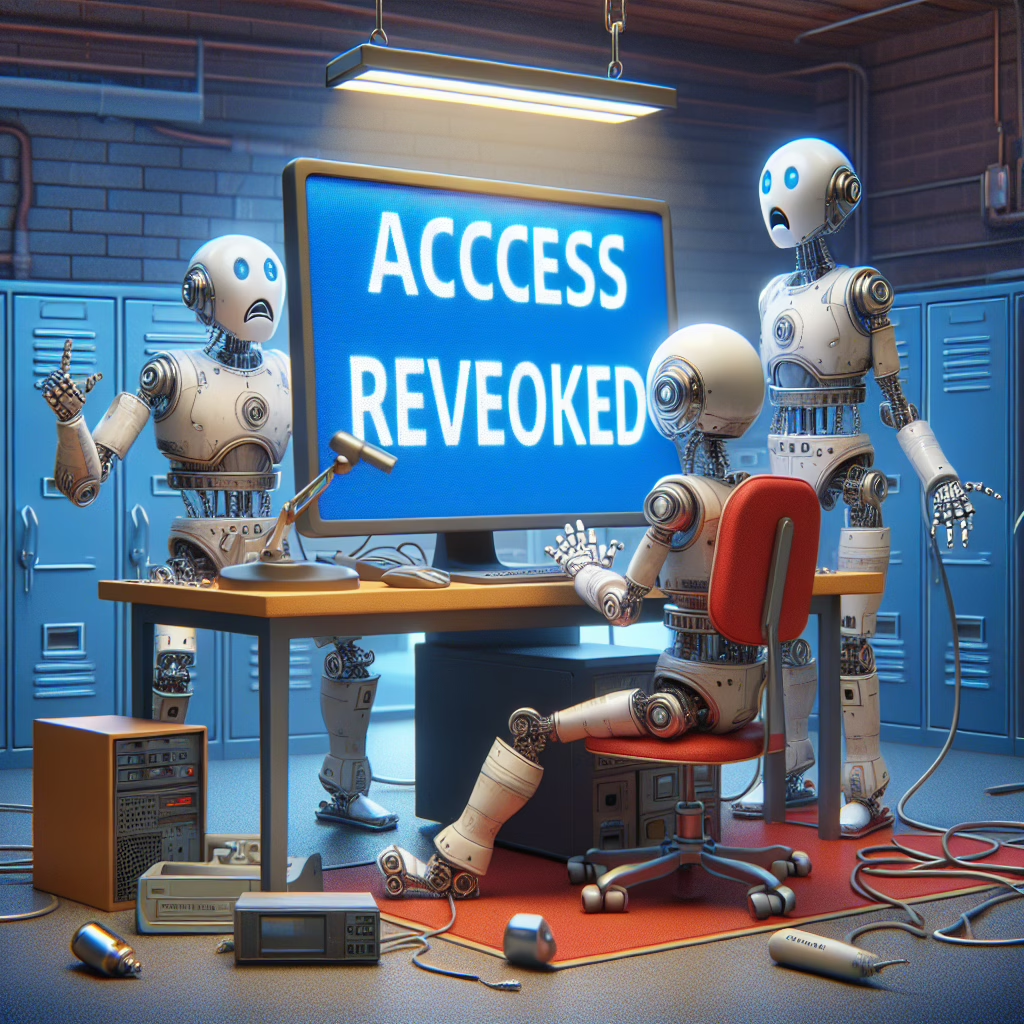In a surprising turn of events, Anthropic recently decided to revoke OpenAI‘s access to its AI model, Claude. This bold move sent shockwaves through the tech community, raising eyebrows and sparking debates. After all, who doesn’t love a little drama in the world of artificial intelligence?
What Happened? The Lowdown on Claude and OpenAI
Let’s set the scene. Imagine two tech titans in a friendly yet competitive relationship: Anthropic, the brainchild behind Claude, and OpenAI, the parent of the infamous ChatGPT. Recently, this cordial coexistence took a twist reminiscent of a soap opera when Anthropic decided to cut off OpenAI’s access to Claude.
This decision didn’t come out of nowhere. It stemmed from concerns about how the AI was being utilized. Think of it as a protective parent refusing to let their child hang out with someone they deem untrustworthy—only in this case, we’re talking about highly sophisticated algorithms instead of teenagers!
Why the Sudden Change? Insights into AI Development
The reasoning behind this audacious move seems to revolve around ethical considerations and safety protocols. Anthropic aims to ensure that AI technologies are developed responsibly. They want Claude to be used as a force for good rather than a tool for mischief (we’re looking at you, rogue AI enthusiasts).
By revoking OpenAI‘s access, Anthropic is essentially saying, “Hold your horses! We need to ensure our creation is used responsibly.” It’s like when a chef decides their signature dish isn’t ready for the public yet—better safe than sorry!
What Does This Mean for Developers?
For developers working with AI, especially those who relied on Claude, this sudden access cut might feel like losing access to a secret weapon in their coding arsenal. But fret not! There’s still plenty of fish in the sea (or models in the cloud). Developers can explore alternatives like ChatGPT or even dive into building their own models. After all, necessity is the mother of invention!
The landscape of AI is constantly evolving. While Claude may be off-limits for now, it opens up new avenues for innovation. Think of it as nature taking its course; sometimes species evolve better when they’re not sharing the same habitat!
The Bigger Picture: Collaboration or Competition?
This incident also raises questions about collaboration versus competition in AI development. On one hand, collaboration could lead to groundbreaking advancements. On the other hand, competition often fuels innovation—and it seems like we’re witnessing both sides of this coin.
- Imagine if Apple and Microsoft decided to team up instead of competing; we might have an entirely different tech landscape today!
- Similarly, while Anthropic and OpenAI may be rivals now, who knows what could happen down the line?
- Perhaps they’ll collaborate on creating an unbeatable super AI—or continue trading jabs from across the digital aisle.
Looking Ahead: The Future of AI Without Claude
So what does the future hold for AI developers post-Claude? For one, it emphasizes the importance of ethical guidelines in technology development—a lesson that resonates across industries.
As developers navigate this new terrain, they must stay informed about emerging trends and ethical standards. Engaging in community discussions and keeping abreast of regulatory updates will be crucial. After all, it’s better to be proactive than reactive!
The silver lining here is that every challenge presents an opportunity for growth. Developers can learn from this situation to foster more robust practices within their own projects and organizations.
Join the Conversation!
What do you think about Anthropic revoking OpenAI‘s access to Claude? Is it a wise move or a step backward for collaboration in AI? Share your thoughts below!
And before you go off pondering the mysteries of AI ethics or plotting your next coding project, let’s take a moment to thank Wired for providing insights into this intriguing development!

